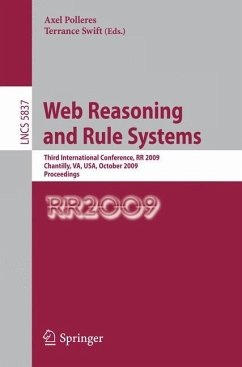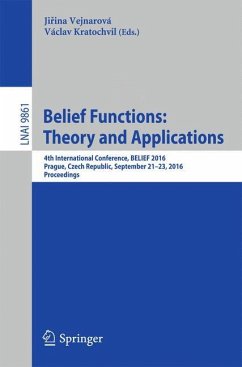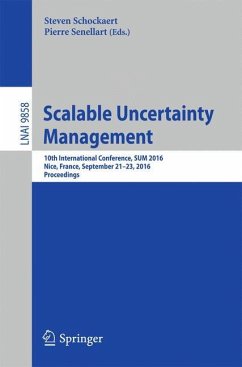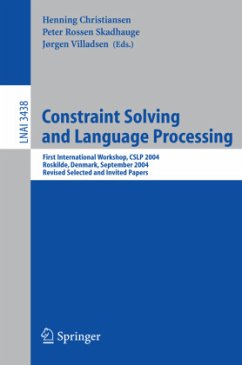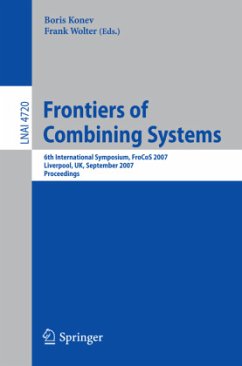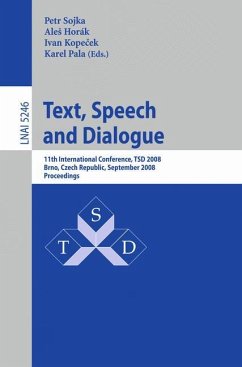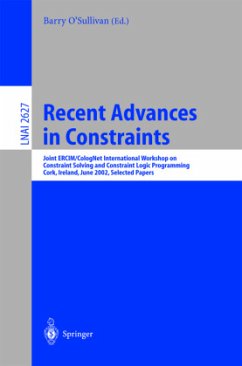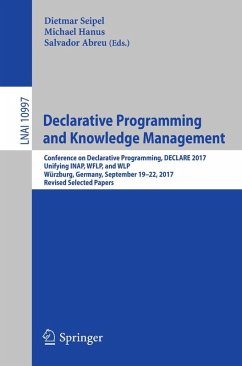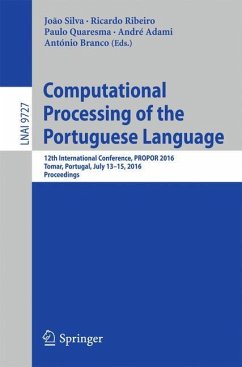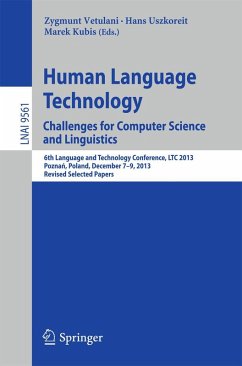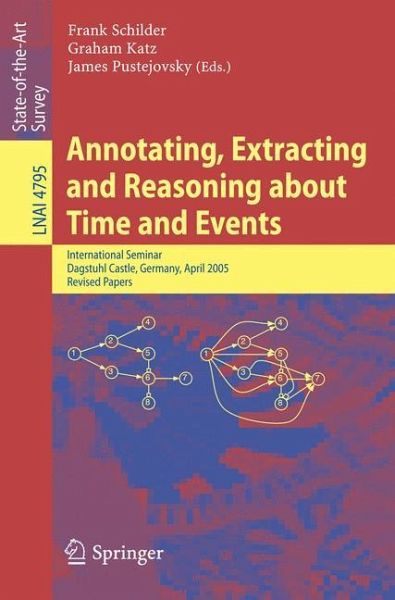
Annotating, Extracting and Reasoning about Time and Events
International Seminar, Dagstuhl Castle, Germany, April 20-15, 2005, Revised Papers
Herausgegeben: Schilder, Frank; Katz, Graham; Pustejovsky, James

PAYBACK Punkte
19 °P sammeln!
The Dagstuhl Seminar 05151 "Annotating, Extracting and Reasoning about Time and Events" took place April 10-15, 2005 at the International Conference and Research Center (IBFI), Schloss Dagstuhl, Germany. During the seminar, 17 leading researchers from 5 di?erent countries presented current research and discussed open problems concerning annotation, temporal reasoning, and event identi?cation. The work presented at this seminar, together with other previous andongoingresearch,centersaroundanemergingde factostandardfortime and event annotation: TimeML. TimeML has recently been adopted as a candi...
The Dagstuhl Seminar 05151 "Annotating, Extracting and Reasoning about Time and Events" took place April 10-15, 2005 at the International Conference and Research Center (IBFI), Schloss Dagstuhl, Germany. During the seminar, 17 leading researchers from 5 di?erent countries presented current research and discussed open problems concerning annotation, temporal reasoning, and event identi?cation. The work presented at this seminar, together with other previous andongoingresearch,centersaroundanemergingde factostandardfortime and event annotation: TimeML. TimeML has recently been adopted as a candidate for an ISO standard, and is currently being reviewed in this capacity. At the seminar, the discussions focussed on the following three Time- related issues: using the TimeML language e?ectively for consistent annotation, determining how useful such annotation is for further processing,and describing modi?cations that should be applied to the standard for applications such as question-answering and information retrieval. Discussions at the Dagstuhl Seminar led to new researchideas, and a variety ofpublicationsandconferenceandworkshoppresentationsresulted.Thiscurrent collection of papers adds to the growing body of work on TimeML. It focusses on important sub-areas within TimeML research such as temporal annotation and temporal reasoning and points to future research directions that are crucial for further progress.





